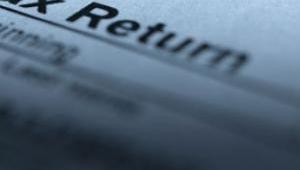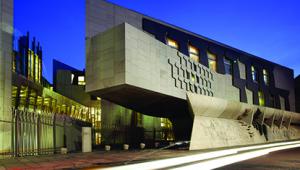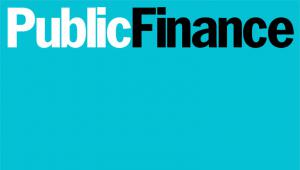The £42.5bn budget includes a freeze in the higher rate income tax threshold, which means Scottish taxpayers on incomes over £27,000 will pay more than their counterparts elsewhere in the UK, while lower earners will be marginally better off north of the border thanks to the 19p starter rate.
The package was passed by 66 votes to 58 following a deal struck between the Scottish Government and the Scottish Greens last month, which saw councils promised a £90m increase in core funding as well as the commitment to legislate for the introduction of a discretionary tourist tax.
Local authorities will also be able to increase council tax by up to 4.79%, instead of the previous 3% limit.
Finance secretary Derek Mackay said the budget provided essential funding for health and care services, education, local government and economic investment, while ensuring that 55% of income taxpayers in Scotland paid less tax than those earning the same income in the rest of the UK.
“The passage of the budget provides £42.5 billion of investment in our public services and economy delivering for the people of Scotland today, whilst building for our future,” he said.
“This is a budget that ensures stability, sustainability and economic stimulus.”
But Murdo Fraser, finance spokesman for the Scottish Conservatives, said the draft “pay more get less budget” had become an “omnishambles”.
In particular, he highlighted “criticism for lack transparency, criticism because of the tax hikes that are being introduced that will hit the poorest families in Scotland the hardest, and criticism because of the cuts in local government services…which mean families will be paying more in tax at the same time as they are seeing the services they depend upon being reduced.”
Scottish Labour said the budget meant high earners would see a reduction in their tax bills while councils faced £230m in funding cuts.
According to the Fraser of Allander Institute, the question of whether tax arrangements were now fairer north or south of the border was complicated by the interplay of different fiscal policies – for example efforts to protect lower paid earners by increasing lower and basic rate income tax bands on one hand and higher than inflationary caps on council tax increases on the other.
“Some of these apparent inconsistencies result from the government’s objective to frame fairness in a narrow sense of being more progressive than the UK - in fact, a cynic might say that Scottish tax policy is motivated entirely by this objective,” it said.
“But there is a clear risk in benchmarking oneself to a tax system that is in itself flawed, rather than considering a bigger picture.”











